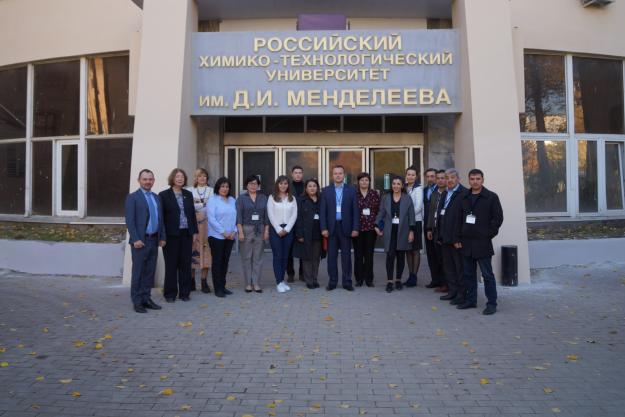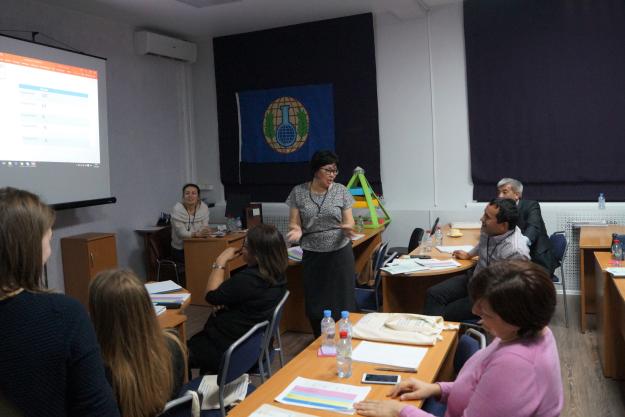
Participants at the workshop to promote Responsible Care held at Mendeleev University of Chemical Technology of Russia in Moscow
THE HAGUE, Netherlands — 26 October 2018 — The Organisation for the Prohibition of Chemical Weapons (OPCW) made strides in the promotion of the Responsible Care® Programme in Eastern Europe and Central Asia, during a workshop held at Mendeleev University of Chemical Technology of Russia in Moscow, from 15-19 October.
The workshop, conducted in Russian and focusing on the best practices for developing the Responsible Care® Programme for the chemical industry, was organised for the third time since 2016 and supported by the International Council of Chemical Industries (ICCA) and European Chemical Industry Council (CEFIC).
The Russian Chemists Union’s representative, Mr Igor Kukushkin, stressed that, “Responsible Care® has already helped the Russian chemical industry move towards more sustainable development and we encourage other countries to reap the rewards of joining this programme”.
OPCW’s Senior International Cooperation Officer, Mr Sergey Zinoviev, expressed hope that “this exercise will foster the adoption of Responsible Care® in the participating countries’ industries while, besides that, it is also instrumental for promoting cooperation in the participating regions, disseminating best practices in implementing chemical safety and security and adopting sustainability principles”.
During the week-long workshop, participants became versed in the fundamentals of Responsible Care® – a global voluntary initiative developed autonomously by the chemical industry for the chemical industry and coordinated by the ICCA. As most of the participating countries are not ICCA members, raising awareness on Responsible Care® is hoped to stimulate their accession to the programme.
The workshop comprised lectures and presentations of case studies of Responsible Care® implementation in various enterprises. Practical exercises and interactive sessions covered consensus finding for preventing environmental pollution, as well as strategic planning and decision making for the adoption of the Responsible Care® Programme.
The event was attended by 12 participants from 10 OPCW Member States including Armenia, Azerbaijan, Belarus, Bulgaria, Kazakhstan, Kyrgyzstan, Moldova, Mongolia, Tajikistan, and Uzbekistan.

Participants at the workshop to promote Responsible Care held at Mendeleev University of Chemical Technology of Russia in Moscow
Background
This workshop was implemented within the scope of OPCW capacity-building programmes in the peaceful applications of chemistry under Article XI of the Chemical Weapons Convention.
Responsible Care® runs, as per the most recent ICCA report, in more than 65 countries covering 96% of the world’s chemical industry. The signatory chemical companies agree to commit themselves to improve their performances in the fields of environmental protection, occupational safety and health protection, plant safety, product stewardship and logistics, as well as to continuously improve dialog with their neighbours and the public.
As the implementing body for the Chemical Weapons Convention, the OPCW, with its 193 Member States, oversees the global endeavour to permanently eliminate chemical weapons. Since the Convention’s entry into force in 1997, it is the most successful disarmament treaty eliminating an entire class of weapons of mass destruction.
Over 96% of all chemical weapon stockpiles declared by possessor States have been destroyed under OPCW verification. For its extensive efforts in eliminating chemical weapons, the OPCW received the 2013 Nobel Peace Prize.
More Information
First Training Workshop in Responsible Care®, (November 2017)
The Chemical Industry’s Responsible Care® Programme Reflects its Commitment to Non-Proliferation
